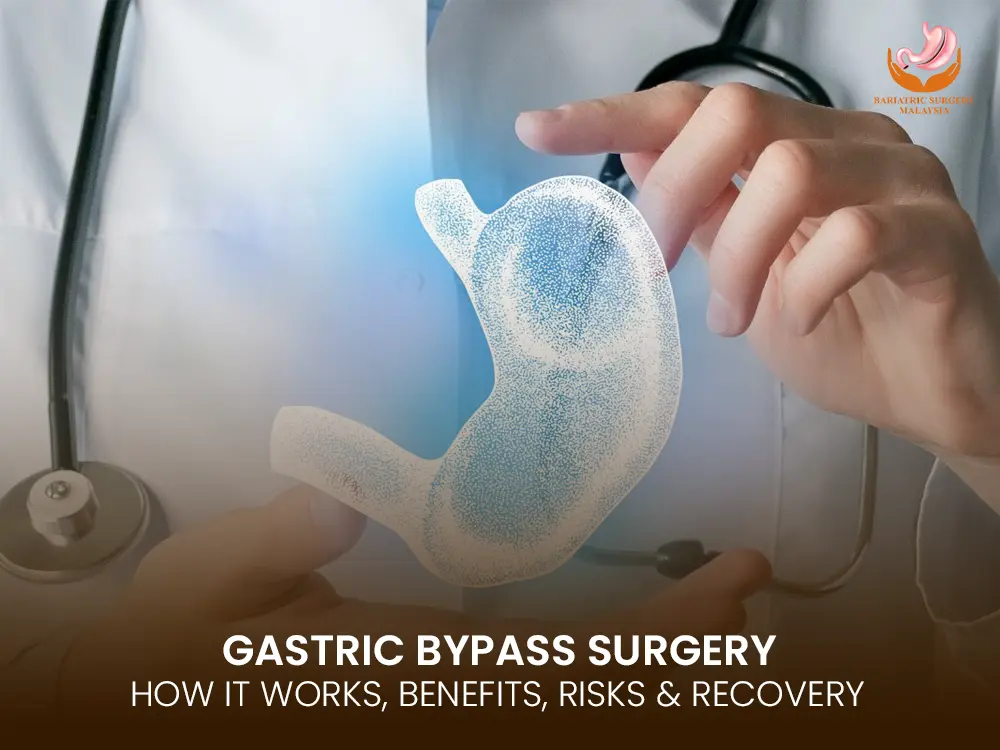For individuals struggling with obesity, gastric weight loss surgery can be a transformative solution. This surgical procedure not only aids in significant weight reduction but also improves overall health and quality of life. In this guide, we’ll cover the types of gastric weight loss surgeries, their benefits, what to expect during recovery, and common FAQs to help you make an informed decision about your weight loss journey.
What Is Gastric Weight Loss Surgery?
Gastric weight loss surgery, also known as bariatric surgery, encompasses various procedures designed to help individuals lose weight by altering the digestive system. These surgeries typically reduce the stomach’s size or modify how the body absorbs nutrients, leading to weight loss and improved health outcomes.
This intervention is often recommended for individuals with a BMI over 40 or those with a BMI over 35 accompanied by obesity-related health conditions such as diabetes or hypertension.

Types of Gastric Weight Loss Surgery
Several types of gastric weight loss surgery are available, each with unique benefits and risks. Here’s an overview of the most common procedures:
1. Gastric Bypass Surgery (Roux-en-Y)
This procedure involves creating a small stomach pouch and rerouting the small intestine. It reduces the stomach’s capacity and limits calorie absorption.
- Benefits: Significant weight loss, effective for managing diabetes.
- Risks: Potential for nutrient deficiencies and dumping syndrome.
2. Sleeve Gastrectomy
This surgery removes approximately 80% of the stomach, leaving a sleeve-shaped portion.
- Benefits: Simpler than gastric bypass, effective weight loss.
- Risks: Permanent stomach size reduction, possible acid reflux.
3. Adjustable Gastric Band (Lap-Band)
A silicone band is placed around the upper stomach to restrict food intake.
- Benefits: Reversible and adjustable, no stomach cutting.
- Risks: Slower weight loss, risk of band slippage.
4. Biliopancreatic Diversion with Duodenal Switch (BPD/DS)
This complex surgery combines stomach reduction with intestinal rerouting.
- Benefits: Highest weight loss potential, effective for severe obesity.
- Risks: High risk of nutrient deficiencies, longer recovery time.
5 Life-Changing Benefits of Gastric Weight Loss Surgery
Gastric weight loss surgery offers numerous health and lifestyle benefits:
1. Significant and Sustainable Weight Loss
Patients typically lose 50–70% of their excess weight within the first two years after surgery. This weight loss is often sustained long-term with proper lifestyle adjustments.
2. Improved Health Conditions
Obesity-related conditions like type 2 diabetes, sleep apnea, and hypertension often improve or resolve entirely after surgery.
3. Enhanced Quality of Life
Many patients report increased energy levels, improved mobility, and greater confidence in their physical appearance.
4. Reduced Risk of Serious Diseases
The surgery significantly lowers the risk of heart disease, stroke, and certain types of cancer.
5. Longevity Benefits
Research shows that individuals who undergo bariatric surgery tend to live longer due to reduced obesity-related health risks.

Who Is a Candidate for Gastric Weight Loss Surgery?
Not everyone is a candidate for gastric weight loss surgery. Ideal candidates typically meet the following criteria:
- BMI over 40, or BMI over 35 with obesity-related health conditions.
- Previous unsuccessful attempts at weight loss through diet and exercise.
- Commitment to long-term lifestyle changes, including diet and exercise.
A thorough medical evaluation, including physical exams and psychological assessments, is necessary to determine eligibility.
The Gastric Weight Loss Surgery Process
Step 1: Pre-Surgery Preparation
Before surgery, patients undergo a series of evaluations and consultations:
- Medical Tests: Blood tests, imaging, and heart assessments.
- Nutritional Counseling: Guidance on dietary changes before and after surgery.
- Psychological Evaluation: Ensures the patient is mentally prepared for the changes.
Step 2: The Procedure
The surgery itself is usually performed laparoscopically, which minimizes scarring and reduces recovery time. The procedure takes 1-3 hours, depending on the type of surgery.
Step 3: Recovery
Recovery includes a hospital stay of 1-3 days and several weeks of rest. Patients are placed on a liquid diet initially and gradually transition to soft foods and solids under a dietitian’s guidance.
Potential Risks and Complications
While gastric weight loss surgery is generally safe, like any surgical procedure, it carries potential risks:
- Infection or Bleeding: Rare but possible post-surgical complications.
- Nutritional Deficiencies: Reduced absorption of nutrients may require lifelong supplementation.
- Dumping Syndrome: A condition where food moves too quickly through the digestive system, causing nausea and diarrhea.
- Weight Regain: Possible if dietary guidelines are not followed.
Life After Gastric Weight Loss Surgery
Adapting to life after surgery involves significant lifestyle changes to maintain weight loss and prevent complications:
Dietary Adjustments
Patients need to:
- Eat smaller portions.
- Prioritize high-protein, low-fat, and low-sugar meals.
- Avoid carbonated drinks and alcohol.
Exercise
Regular physical activity is essential for maintaining weight loss and overall health. Patients are advised to gradually increase their activity levels post-surgery.
Follow-Up Care
Routine follow-ups with the surgical team and dietitian help monitor progress and address any concerns.

Frequently Asked Questions FAQs
1. What is the cost of gastric weight loss surgery?
The cost varies depending on the type of surgery, location, and insurance coverage. It can range from $10,000 to $25,000.
2. How long does it take to recover from gastric weight loss surgery?
Most patients can return to normal activities within 4-6 weeks, but full recovery may take longer, depending on the procedure.
3. Will I need to take supplements after surgery?
Yes, patients often need lifelong vitamin and mineral supplements to prevent deficiencies.
4. Can gastric weight loss surgery fail?
Weight regain is possible if patients don’t adhere to dietary guidelines and lifestyle changes. However, the surgery itself has a high success rate.
5. Is gastric weight loss surgery reversible?
Some procedures, like the adjustable gastric band, are reversible, but others, like gastric bypass and sleeve gastrectomy, are permanent.
6. How much weight can I expect to lose after surgery?
Patients typically lose 50–70% of their excess weight within the first two years post-surgery.
Conclusion
Gastric weight loss surgery, encompassing procedures like gastric bypass, sleeve gastrectomy, and adjustable gastric banding, offers a powerful and often life-changing intervention for individuals struggling with severe obesity and related health complications. While it’s not a magic bullet and requires significant commitment to lifestyle changes, including dietary adjustments, regular exercise, and ongoing follow-up care, the potential benefits are substantial and far-reaching.
These benefits extend beyond just shedding pounds, impacting overall health and well-being in profound ways. From significant and sustainable weight loss to the improvement or even resolution of obesity-related conditions like type 2 diabetes, hypertension, sleep apnea, and joint pain, gastric weight loss surgery offers a path towards a healthier and more fulfilling life for many who have struggled to achieve lasting results through traditional methods. This procedure can be a crucial tool in managing obesity and improving long-term health outcomes, offering a renewed sense of vitality and an enhanced quality of life.



